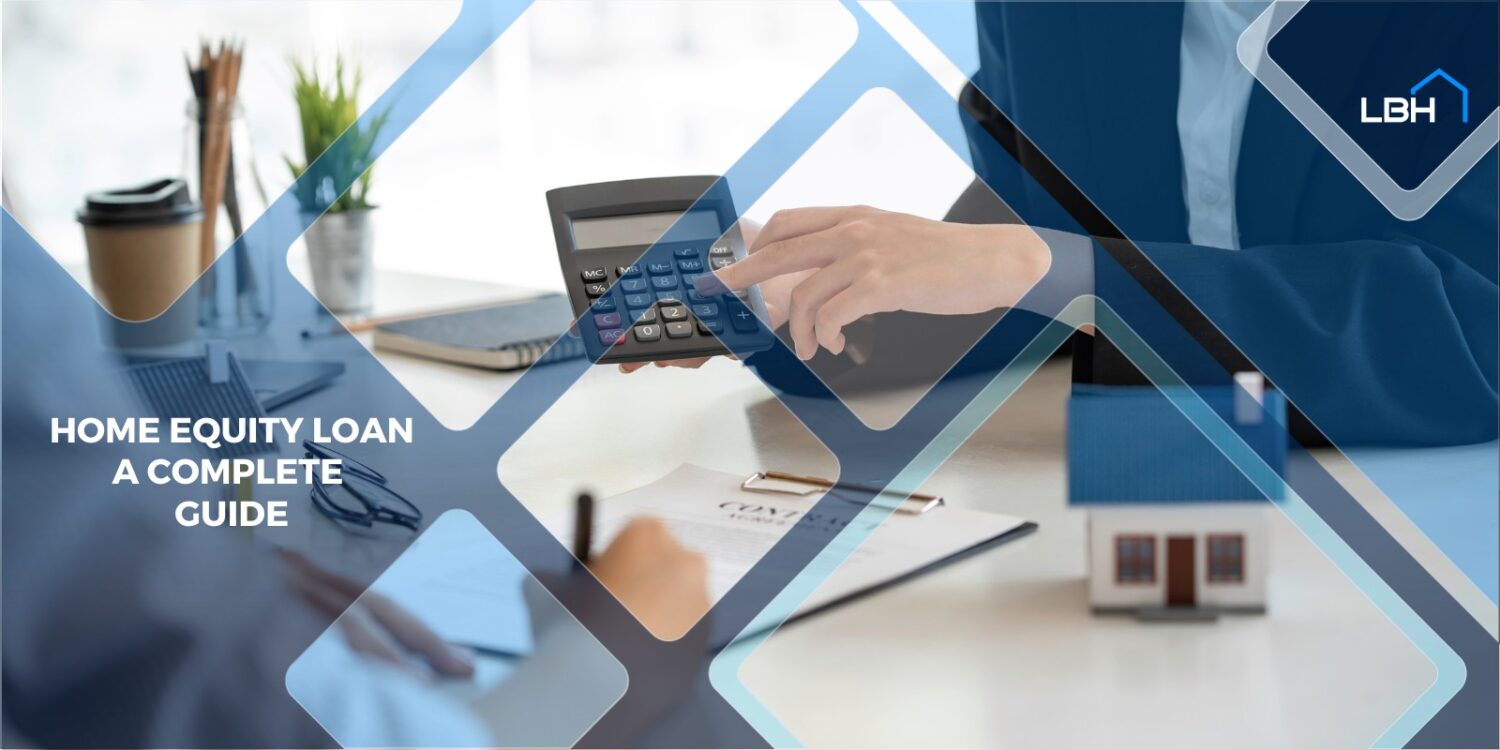You’ve probably heard of people getting a mortgage on their home, but have you heard of a “second mortgage”? In formal terms, we refer to it as a home equity loan.
Indeed, buying a home is one of the biggest purchases of a lifetime. Even so, other financial concerns will arise after this big-ticket purchase. Home equity loans help cover these ongoing purchases while ensuring you’re financially secure in the long run.
In this guide, we delve into:
- What is a home equity loan?
- How it compares to other loan types
- Its application and processing
- The qualifying criteria for the loan
- Other similar alternatives
- How the loan affects you financially
What Is a Home Equity Loan?
A home equity loan secures your existing home or property to fund other financial needs.
The operative term here is “equity”. Equity is based on a simple calculation. It refers to your property’s current market value minus the outstanding mortgage amount on the same property.
You use this equity in your home to finance other needs, such as home renovation or repairs. The amount you receive from your lender depends on your home’s appraisal value.
Home equity loans are more reliable than other consumer loans due to their:
- Relatively lower interest rate
- Fixed interest rate
- Lengthy repayment period
- Ability to deduct tax on the loan interest
One of the reasons for the low interest rate is that you use your home or property to secure this “second mortgage”. Lenders retain your home as collateral against your loan. It works similarly to a traditional mortgage, wherein the lender can seize or recoup your home through a forced sale if you fail to repay the loan.
Home Equity Loans vs. Mortgage
A conventional mortgage is similar to a home equity loan. The difference is in the purpose and stages at which you use them in the home-buying process.
A conventional mortgage is a loan from a lender to purchase a property. You’ll likely receive nearly 80% of its appraised value as a loan. In this type of loan, the property you’re buying serves as collateral if you default on your monthly repayments. Your home can undergo foreclosure if you do so.
Conventional mortgages are often known as “first mortgages,” implying they’re a stepping stone to purchasing a property.
Home equity loans are “second mortgages.” You can apply for a home equity loan when you already own an existing property that can serve as collateral. It simply means that your home has accumulated equity, which a lender can use to finance your loan.
If you were to default on your first mortgage, aka a conventional mortgage, foreclosure on your property takes precedence over any subsequent loans you take (in this case, a home equity loan).
Home Equity Loans vs. Personal Loans
It is easy to confuse home equity loans and personal loans. In both loans, you receive a lump sum amount at a fixed rate from the lender bank. You repay both loans in monthly installments over a fixed period determined by the lender.
But the biggest difference between home equity and personal loans is “collateral.” For home equity loans, your property serves as collateral for the lender to seize in case of defaulted payments. Personal loans are unsecured and lack any collateral.
Other differences include varying interest rates, repayment terms, borrowing limits, and qualifying requirements.
How Does a Home Equity Loan Work?
Home equity loans are a great way to gain control of your finances and consolidate debt. You can also use them to pay for repairs or household expenses. Applying for this loan is usually simple if you fulfill certain criteria.
Before applying, you’ll need to consider the following:
- Determine how much equity you have in your home. You can do this by deducting the pending mortgage amount from the total value of your home. The balance amount is your home equity.
- While applying, you’ll need several documents supporting the above estimates, such as your household income statement, mortgage statements, property tax bills, and other property invoices.
- You also need to choose between applying independently or with a co-applicant.
- If you live in a home that serves as collateral for the loan, it may undergo foreclosure if you fail to make payments. Rethink this move by reviewing your finances before applying. It will help you understand if you’re able to make monthly payments.
Understanding Home Equity Loan Terms
Let’s look at some basic terms associated with home equity loans.
- Equity
Home equity represents the extent of your home ownership. It is the difference between your home’s overall value and the mortgage owed to your lender. You build more equity in your home by making monthly payments and reducing your outstanding loan balance.
- Fixed-rate Equity Loan
You can obtain home equity loans at a fixed interest rate. It means you’ll repay the loan at the same rate you applied. Since there are no changes in the interest rate, you can assess your finances and make fixed monthly payments.
- Lump sum Amount
When you apply for a home equity loan, you receive a lump sum amount from your lender. This amount depends on the value of your home that serves as collateral.
Advantages and Disadvantages of a Home Equity Loan
Let’s weigh in on the pros and cons of a home equity loan to help you decide if it’s right for you.
Pros
- Low-interest rates: Since your property is collateral, home equity loans have lower interest rates than credit cards or personal loans.
- Fixed rates and monthly payments: Home equity loans have fixed interest rates throughout the loan duration. You won’t have to cope with erratic mortgage payments as you’ll know how much to pay monthly.
- Increased borrowing limit: The more equity you have in your home, the more you can borrow from your bank. This borrowing potential may not be possible with other loan options, such as personal loans or credit cards.
- Favorable repayment terms: Home equity loans have an extended repayment period of up to 30 years. With the low interest rates and a fixed repayment sum, you can pay a manageable monthly amount over several years.
- Tax benefits: Home equity loans are tax deductible. You can save money on tax if you use the loan for home repairs or renovation.
Cons
- Additional mortgage: As a “second mortgage,” a home equity loan is just one more payment to worry about along with your primary home mortgage.
- Closing fees: Despite low interest rates, an equity loan on a home can include appraisal fees and other closing charges.
- Foreclosure risk: With an equity loan, you risk losing your home if you fail to repay the lender.
- Need minimum equity: You need at least 15-20% equity in your home to qualify for a home equity loan. If you’ve just bought your house with a standard mortgage, you’ll need to wait a while to build sufficient equity in your home.
- Slower processing time: Home equity loans are not suitable if you’re in immediate need of cash. Though they’re more convenient than a conventional mortgage, they need extensive documentation. As such, it can be a while before lenders green-light your equity loan application.
Eligibility and Requirements
You need to meet several criteria to be eligible for a home equity loan.
- Home Equity
Lenders will look at two metrics to determine whether your home equity meets the desired criteria:
- Loan-to-value ratio (LTV): This is the amount of outstanding mortgage balance relative to your home value
- Combined loan-to-value ratio or CLTV: This factors in all pending loans on the property
You’ll need an LTV or CLTV ratio of up to 85% to qualify for a home equity loan.
- Credit Score
As with most loans, lenders review your credit score to determine whether you’re eligible for a loan. You’ll need a good credit score of at least 620 or higher to prove to your lender that you can manage expenses successfully and make monthly payments.
- Debt-to-income or DTI Ratio
Your debt-to-income (DTI) ratio is the amount of your monthly debt payments relative to your gross monthly income. You’ll need a low DTI ratio to qualify for a home equity loan. A low DTI indicates a reasonable balance between your earnings and debt obligations, translating into timely mortgage payments.
- Other Documents & Fees
Home equity loans require you to pay closing fees on the loan amount. These fees include costs for:
- Title searches
- Home valuation
- Loan processing
- Loan origination
Closing fees typically range between 2% to 5% of the total loan amount.
Some lenders also have a “seasoning requirement”, which requires you to wait at least six months after you buy a home before applying for an equity loan. But if your home has ample equity (thanks to a substantial down payment), the lender may waive this condition.
- Key Financial Documents
Lenders will request financial documents to assess your financial situation and confirm your income. Recent pay stubs, tax returns, bank statements, proof of employment, and investment account statements are some of them. You may also need the most recent mortgage statement and homeowner’s insurance papers for any existing home loans.
- Credit Score and Eligibility
A low credit score doesn’t always mean immediate loan rejection. For example, if you have a sizable home equity, some lenders may approve the loan despite a low credit score. However, this comes with a few caveats and could:
- Drive up the interest rate
- Lead to a shorter repayment term
- Lead to lower borrowing allowance
That said, you should take steps to improve your credit score before applying for a loan.
Application Process
Follow these steps for convenient home equity loan financing:
- Calculate Equity: You’ll first need to calculate your home equity to determine if you qualify for a home equity loan. You can do this if you have details about your home value and outstanding mortgage balance. Use a home equity loan calculator for this.
- Choose a Preferred Lender: Not all lenders are the same. While most have similar qualifying criteria, the specifics may vary. You’ll need to list and compare them based on:
- Repayment terms
- Interest rates
- Fees
- Eligibility criteria
You need to choose a suitable lender for your budget and requirements.
- Apply for the Loan: After zeroing in on a lender, you can fill out and submit a loan application online or in person. While applying, you’ll need to be ready with the required documents as directed by the lender.
- Get a Home Valuation: Once the lender accepts your application, they will order a home valuation to determine its worth and see if it has sufficient equity.
- Examine and Sign Loan Documents: If all goes well and the lender approves the loan, they will send a series of documents for you to review and sign. You can enlist the help of your financial advisor to review the terms, costs, and rates carefully before signing.
- Receive a Lump Sum Amount: This is the good part. You’ll receive a lump sum amount from the lender.
Documentation and Appraisal Requirements for Home Equity Loans
You’ll need to gather all documents ordered by the lender. The lender has to confirm your income, review your financial history, and even look at existing loans you have to assess creditworthiness.
Here’s a standard list of documents you need when applying for a home equity loan. Note that the exact requirements might vary depending on your lender bank.
Proof of Income
To prove that you have a steady income, your lender may ask for the following items:
- Latest pay slips
- Bank statements
- Tax statements
- W-2 forms
The above documents will also vary depending on your employment status, i.e., whether you’re:
- Employed
- Self-employed
- Retired
For example, if you’re self-employed or receiving any supplemental income, the lender may ask for documents such as:
- Income tax returns
- Insurance policy documents
Personal Identification
These include government-issued IDs or personal IDs such as:
- Social Security number
- Passport
- Driver’s license
Property Information
Lenders require property information to conduct a home appraisal. This includes:
- Property deed
- Property purchase price and date
- Estimated property value
- Mortgage statement
- Outstanding liens, taxes, or other dues on all existing property
Home Equity Loans and Alternative Financing Options
Let’s examine the differences between home equity loans and alternatives like HELOCs and cash-out refinancing.
HELOCs vs. Home Equity Loans
It’s easy to mistake a home equity loan for a HELOC. HELOC refers to a home equity line of credit. While a home equity loan is a one-time payment, a HELOC offers you a continuing, open line of credit. It operates like a credit card, where you borrow and repay as needed.
With HELOCs, however, you get a higher borrowing limit than a credit card and lower interest rates. HELOCs and home equity loans are similar in that the lender still needs to use your home equity to finance the loan.
Their flexible payment terms make them an attractive option, but you should note that HELOCs have a variable interest rate, unlike home equity loans. Their open line of credit may also tempt you to borrow more than you need.
You should apply for a HELOC only if you wish to boost your home’s value with valuable repairs or improvements. It makes sense if:
- You’re gainfully employed
- You have a stable income
- You can afford an additional bill on top of your mortgage
Cash-out Refinancing vs. Home Equity Loans
Cash-out refinancing provides a lump sum amount, the same as home equity loans. The difference is that it allows you to access this lump sum cash by converting your present mortgage into a larger one.
This is a good option to refinance your loan for ready cash. If you opt for it, you should expect varying interest rates. If the Federal Reserve raises mortgage rates, you’ll have to pay more interest throughout your loan term.
You may also need to pay private mortgage insurance (PMI) if your home equity takes a hit after the refinance.
Other Types of Home Loan
If you want to finance a mobile or manufactured home, consider these options:
- If you’re buying a manufactured home for the first time, you can apply for Title I or Title II loans. The Federal Housing Administration (FHA) issues both loans. FHA loans have simple eligibility requirements like a lower credit score and fixed interest rates.
- You’re eligible for USDA home loans if you buy a home in a designated rural area or town. You also need to meet certain income requirements to qualify for this loan, which offers a zero-down-payment mortgage.
- Other mobile home loans include those issued by government-sponsored programs like Freddie Mac and Fannie Mae.
- If you wish to build a home from the ground up, you can use construction loans to finance the construction.
Practical Uses of Home Equity Loans
In many cases, it makes sense to use a home equity loan, including home repairs and debt consolidation. But its use extends beyond these. Here are some examples of when you can use a home equity loan:
- Paying off credit card debt
- Paying for a major event, like a wedding or a funeral
- Financing education for yourself or your child
- Funding a business or investment
- Making major purchases like a car
- Saving money in a trust or emergency fund
- Clearing medical bills
- Financing a major vacation
The bottom line is you can use a home equity loan for whatever reason you deem fit. That said, do remember that it is a “second mortgage,” so use it for sensible purchases such as:
- Home renovations
- Major life expenses
- To consolidate debt
- Emergencies
Home Equity Loan Case Study
The Millers were a middle-aged couple who lived in a suburban neighborhood. They were recently in a financial bind and needed money to:
- Renovate their home
- Fund their daughter’s college education
- Consolidate debts with high interest rates
The Millers had owned their home for over a decade and had amassed substantial equity. They were current on their mortgage payments and considered taking a loan to cover the above expenses. They agreed that tapping into their home equity was a good idea, so a home equity loan was the best option.
With a lump sum amount available at a fixed rate, they could afford monthly payments. Since they were a dual-earning household, they believed this loan wouldn’t compromise their long-term financial stability.
They also consulted with a financial advisor to better understand the terms and risks of a home equity loan.
After comparing various lenders, the Millers chose a trustworthy lender with competitive rates and terms. Despite their low credit score due to high-interest debts, the lender approved their loan based on their robust home equity. After they signed the loan papers, they received a lump sum amount.
Finally, the Millers were able to:
- Carry out their home renovations
- Secure their daughter’s schooling
- Pay off their debts
Having taken care of their main financial burdens, they were able to manage their fixed monthly mortgage budget well, which strengthened their financial standing.
Understanding the Financial Implications of a Home Equity Loan
Loans don’t operate in a vacuum. They almost always affect other financial aspects, so you should know their implications.
- Impact on Credit Score
Every loan you take shows up on your credit report. Your FICO credit score can increase or decrease depending on your financial decisions. New loans or lines of credit account for at least 10% of your FICO score.
This means taking a new loan, such as a home equity loan, can lower your credit score. It gradually repairs itself as you pay your mortgage over the life of the loan.
Making timely mortgage payments is another factor that repairs your credit score when you take out a loan. Loan payment history accounts for nearly 35% of your FICO score.
Your FICO score also depends on the kinds of credit you take. Your credit score is always more balanced when your report reflects a combination of loans and credit forms.
For instance, if your credit report previously only listed credit cards, adding a home equity loan to your credit portfolio can improve your credit report. This is because lenders prefer knowing that you can manage multiple forms of credit at once.
- Tax Implications
Since December 2017, the interest on home equity loans is tax-deductible. This, however, depends on several factors, such as:
- The amount of your loan and the interest you pay
- When you took out your loan
- The purpose your funds were used for
- Choosing itemized vs. standard deduction
You can deduct interest on verified loans up to $750,000. Another caveat is that you must use the funds strictly for building, renovating, or repairing your home. If you use the home equity loan for other purposes like debt consolidation or to fund your child’s education, it is not tax-deductible.
If you fulfill the above conditions for a tax deduction, you can itemize your deductions and receive a tax break.
Overview of Terms, Rates, and Fees in Home Equity Loans
We help you clarify some of the jargon associated with home equity loans.
- Adjustable-Rate Mortgage (ARM): An ARM is a home loan with a variable interest rate. This means that your interest rate remains fixed for a stipulated time, but changes periodically once or twice a year.
- Amortization: Amortization is a payment structure defined by lenders. Following this structure helps you, the borrower, spread out loan payments over the life of the loan. It’s done in such a way that the majority of the interest is paid back first, followed by the principal amount.
- Annual Percentage Rate (APR): An APR tells you how much your loan costs you annually. It covers the interest amount, plus any extra fees.
- Cap: A cap is a sort of protective limit on your ARM. It defines the maximum interest rate you’ll pay if and when the rates rise.
- Closing Costs: These costs include various fees you must pay while taking out a loan. They usually amount to 2% to 5% of the overall loan amount. Closing costs may include notary costs, appraisal fees, credit report costs, attorney fees, and title insurance fees.
- Fixed-Rate Mortgage: A fixed-rate mortgage is a loan with a fixed interest rate that allows you to make consistent monthly payments over the term of your loan.
- Origination Fee (Points): The lender charges you origination fees upfront for processing your loan. It covers tasks such as underwriting, application processing, and document preparation. Origination fees typically are 0.5%-1% of your loan amount.
FAQ and Concerns
Let’s address some common questions and concerns about home equity loans.
- What are the risks involved in a home equity loan?
The most major risk involved in a home equity loan is losing your home to foreclosure. This can happen if you’re unable to pay your monthly mortgage. You may also risk lowering your credit score by taking a home equity loan. This can affect any subsequent loans you take.
- Is it possible to get a home equity loan with a low credit score?
Creditworthiness is an important precursor to getting a loan. It shows the lender you’re capable of repaying the loan and managing your expenses. Although the standard credit score for a home equity loan is 620, you can get approval if you meet other criteria.
For example, some lenders will overlook a poor credit score if you have substantial home equity. Lenders may also ask you to reapply with a cosigner.
- Can I have two home equity loans?
You may have two home equity loans, but it doesn’t mean you should. Taking out a home equity loan can lower your credit score, which means an additional loan will be challenging to obtain. Lenders require higher credit scores and have higher interest rates for an additional loan.
Securing Your Future With Home Equity Loans
The beauty of home equity loans is that they go beyond home purchases or repairs. This loan offers a lump sum amount you can pay over a long repayment period. The fixed interest rate means you’ll face no surprises, as a potential increase in rates won’t affect your monthly budget.
Be mindful, however, that your current home or property serves as collateral for your loan. Without substantial equity, you risk losing your home to foreclosure.
Also, be mindful of the following:
- You must examine your finances before applying for a home equity loan. You can consult a financial advisor to help you determine if this is the best way forward.
- You’ll also do well to check beforehand if you meet the eligibility criteria.
- Lastly, you can get the best deal on your loan by comparing various lender offers.
Home equity loans offer a reliable strategy to help you control your finances. As you already know, they’re reliable, offer fixed interest rates, and can potentially help you save tax.
If you’ve built sufficient equity in your property or home, this loan can help you seamlessly cover your financial costs and keep you worry-free.












